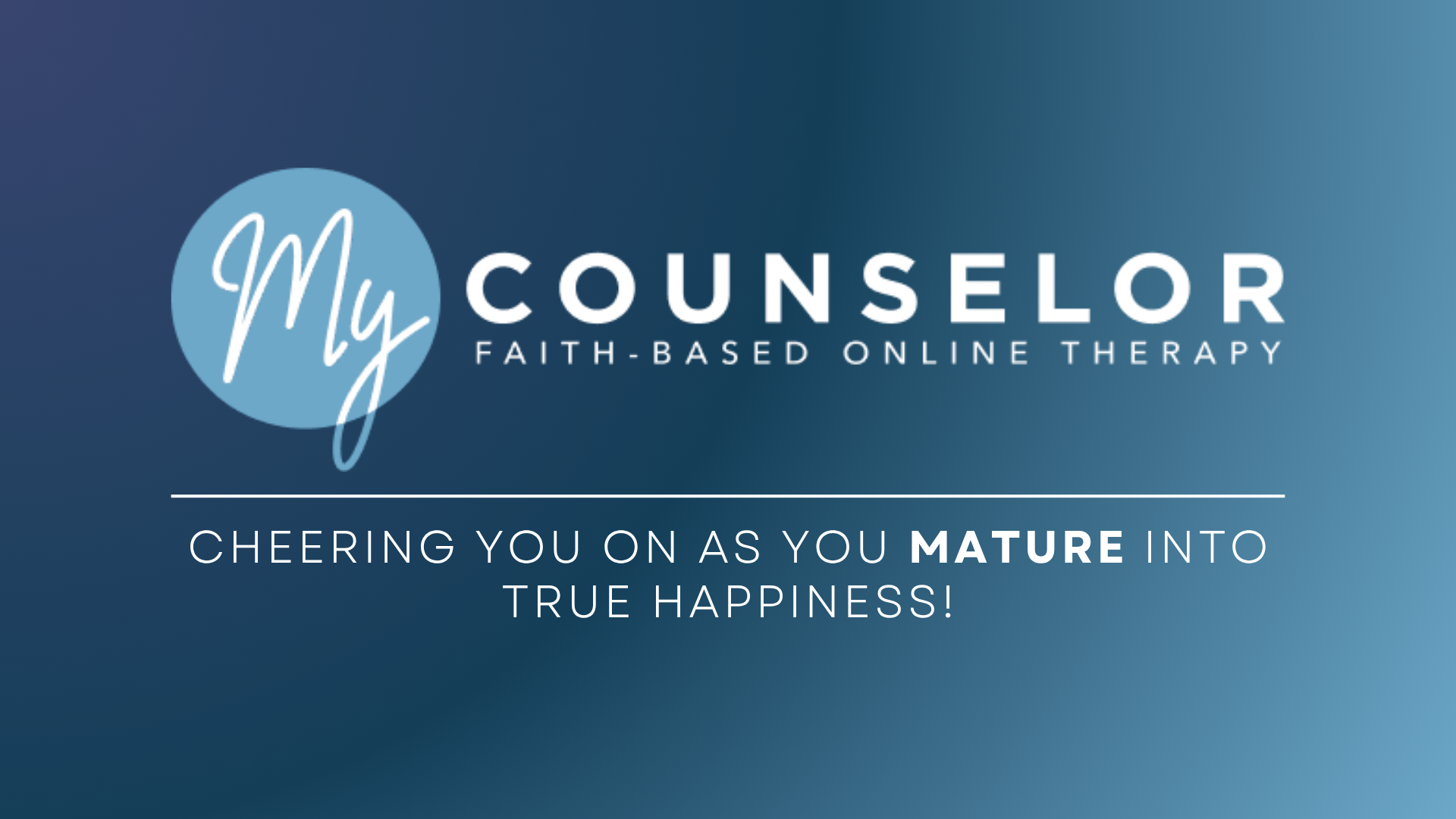Burnout in Ministry | Symptoms, Causes, and Prevention
This article is based on scientific evidence and clinical experience, written by a licensed professional and fact-checked by experts.
Posted: March 3, 2023
Estimated reading time: 18 minutes
In This article

Christian Counseling
with a 93.6% success rate!
Burnout is a state of mental and physical exhaustion caused by excessive and prolonged stress.
There are three stages of burnout: Stressed, Overwhelmed, and Crispy. While the process can be stopped at any point, it’s generally in the crispy stage that people begin to have a sense that “something is wrong”. If you find yourself in any of the stages, there’s help – Christian counseling can empower you to identify the causes and recover. Read on to learn strategies for preventing burnout…
Identifying the Signs of Burnout
Hopefully by being aware of the signs at each stage you can catch burnout and take action before it progresses. Manifestation of any two symptoms from a stage is a good indicator you’re in that stage.
STAGE 1: STRESSED
Characterized by anxiety symptoms.
- Irritableness
- Anxiety / Worry
- High blood pressure
- Grinding your teeth in your sleep
- Insomnia
- Increased Illness
- Loss of Appetite or Stress Eating
- Unusual heart rhythms (skipped beats, rapid pounding)
- Struggle to concentrate/forgetfulness
- Headaches
STAGE 2: OVERWHELMED
Characterized by decreasing performance, increased negativity, withdraw, and attempts to medicate the symptoms.
- Lateness for work
- Procrastination
- Dreading returning to work
- Increased marital conflict
- Decreased sexual desire
- Persistent tiredness in the mornings
- Missing project deadlines
- Social withdrawal (from friends and/or family)
- Cynicism
- Resentfulness
- Increased caffeine consumption
- Increased alcohol consumption
- Apathy
STAGE 3: CRISPY
Characterized by depression symptoms.
- Chronic symptoms:
- Sadness or depression
- Stomach or bowel problems
- Mental fatigue
- Physical fatigue
- Headaches
- Hopeless Discouragement
- The desire to “check out” or run away from friends, work, and perhaps even family
- Occasional thoughts about ending your life
Leading Causes of Burnout
The leading causes of burnout include:
- Bad Theology
- Misplaced Priorities, Identity, Value, and Worth
- Unrealistic Expectations
- Poor Work and Personal Boundaries
- Inadequate Self-Care
BAD THEOLOGY
In many cases bad theology is, in part, responsible for high levels of burnout and attrition in the ministry. As we discussed earlier in Theology of Self-Care, many Christians have gotten the message that to deny oneself means to live in denial of one’s humanity. Somewhere along the line we got the message that serving whole heartedly means neglecting the needs God has created our bodies with as well as the command to regularly practice sabbath rest.
“If we’re not careful we can get caught up in a works-based mindset where we earn approval from God by sacrificing our bodies (and often our families) on the altar of ministry. ” – Josh Spurlock, MA, LPC, CST
This theology of self-care leads us to a “never say no”, give 100% of our energy to the ministry (even if that means stealing from our families to do so), it’s up to me to save the world mindset that is unsustainable.
While you can do all things through Christ who strengthens you, God does not empower us to do what He is not calling us to do…that’s why you can’t leap from a tall building, sprout wings, and fly.
Jesus told many people “No” and was a big disappointment to even his closest friends’ expectations. God is not calling you to do everything. You get no extra credit for doing what he hasn’t asked you to do. In fact, if you misappropriate time and energy to things that are not God’s priority for you, no matter how good they are, it’s a failure in stewardship.
Sometimes, the most Godly thing to do in a situation is say “No” to a great ministry opportunity, in order to use that time for self-care (see Jesus – Mk 1:35, Luke 5:16, Matt 14:22-23).
MISPLACED PRIORITIES, IDENTITY, VALUE, AND WORTH
Sometimes our priorities are in the ditch of secular hedonism/idolatry where our focus is on our wants, wishes, and what we believe will make us happy. However, there is another ditch on the other side of the straight and narrow. In this ditch, often due to bad theology, we try to seek approval from God by being out of balance. Instead of realizing God has multiple priorities for our life (our spouse, our kids, self-care, enjoying creation, engaging ministry) we get over focused on any one of His priorities for us, to the neglect of the others.
Sometimes this is motivated from wounds in our heart involving our sense of identity, value, and worth.
We feel the only way to have significance or be worthy is to work without ceasing. We can never do enough, and we feel guilty if we aren’t working. We need to achieve or to please others. This need to earn our worth or the approval and acceptance of others drives us to an unhealthy, out of balance life. Our fear of disappointing others or failure causes us to say “Yes” when we should say “No”.
UNREALISTIC EXPECTATIONS
For some the answer to “How much should I give?” is always more. Nothing is ever good enough and we live with a constant feeling of guilt, that we aren’t doing enough. Especially in western culture we can buy into the myth of 110%. We talk about giving this or that 110%!
The truth is, we can’t even give anything 100%. Further, God isn’t asking us to give 100% of our time, energy, or attention to any one thing. If we did, we would be neglecting many other things that are important to God.
To some this may sound like sacrilege, but you can’t even do “your very best” at anything. For any area of your life, if you devoted 16 hours of everyday (allowing 8 hours for sleep), 7 days a week, 365 days a year you would do it better.
That’s not possible! The question isn’t, what is your “very best”, the real question is “How much time, energy, effort would the Lord have me give to this?” The question is – What is “good enough”? If it’s “good enough” for the King – then believe me, it is indeed Good Enough. Even if you know it could be done better or it’s not good enough for others.
“It is your King’s expectations that matter. So long as He is pleased with your stewardship of time and energy, that needs to be good enough for you. It is to Him alone that you will give account for your life.” – Josh Spurlock, MA, LPC, CST
This means you must daily be talking with the King about His priorities for your time. If you feel like the King is an unrelenting task master, there’s a real good chance that has more to do with wounds from some experiences in your life than Jesus.
POOR WORK AND PERSONAL BOUNDARIES
Boundaries, simply put, are how we use our “YES” and “NO” to manage our life. For reasons discussed above, many of us struggle to know when we should say YES and how to say NO. As a result, we commit ourselves to more than we should, and we allow others to control our lives.
This doesn’t feel good and leads to resentment, but we find it easier than disappointing or upsetting others.
We would rather avoid the conflict and neurotic guilt (false feelings of guilt when we haven’t violated God’s heart) than assert healthy boundaries.
INADEQUATE SELF-CARE
The buck stops with you when it comes to self-care. When you were a child it was your parent’s responsibility to take care of you. As an adult, that responsibility rests squarely on your shoulders.
God has given you the job of caring for the most precious resource/asset you have – your body. Without it, you cannot complete the good works God has prepared in advance for you, nor use it to bring glory to and revelation of your God or serve others as His body. You also cannot enjoy the abundant life He has created you for, experiencing all the good gifts and blessings he intends for you.
“You cannot give what you do not have. You cannot lead others where you yourself have not gone. If you do not take good care of yourself, how then do you love others “in the same way” you do yourself and have that be a blessing to them?” – Josh Spurlock, MA, LPC, CST
The only way to live life to the fullest, as God intends for you, is to be diligent about spiritual, physical, emotional, and intellectual self-care.
How to Prevent/Treat Burnout
The best way to treat burnout is to avoid it all together with good self-care practices.
If you’re already deep into burnout you may need to take an extended break, anywhere from a week vacation to a year sabbatical, to revive and recalibrate your life. If you don’t, you leave yourself vulnerable to the attacks of the enemy.
Very often, it is during seasons of burnout where the enemy of your soul gets a hook in that he can use to kill, steal, and destroy your ministry.
Your personal devotional life is key to your ability to lead others in spiritual growth. Too often this part of our life can become dry or mechanical. We go through the motions of attending services, reading our Bible, engaging a Bible study, and prayer. It loses its life though.
Spiritual self-care is about making space in your life to pursue an ever-deepening relationship with our King. While discipline and structure are helpful, you have to resist “checking the box”.
Give yourself permission to stop what isn’t working and pursue connection with God in ways that give life to your soul. Explore the spiritual disciplines.
Since Adam and Eve, people have been in relationship with God. The practices of relating and growing in God have developed and been practiced for millennia.
There isn’t a one size fits all approach, but there is much to learn from those who have gone before you. Make space in your life to learn of the spiritual disciplines of saints of old, both the ones in your life and those you can read about.
These spiritual disciplines include:
- Practicing the Presence, mindfulness of God
- Meditating on the Scriptures
- Practicing Solitude and Silence, spending time in the presence of God apart from others
- Engaging in Corporate Worship
- Prayer Journaling (think Psalms)
- Prayer Walking
- Fasting
- Feasting & Celebration
- Confession
- Spiritual Retreats
- Music
Spiritual self-care isn’t independent of other elements of self-care. Think about it like going on a date with your spouse (present or future). Sure, the structure of a regular date night is helpful, but if you are completely spent and show up emotionally, physically, and mentally drained…staring blankly at your spouse drooling on yourself…you probably aren’t going to experience much connection.
Getting up at 5 am for devotional time, when you didn’t get to bed until 2 am because you were engaging ministry (or Netflix) is probably not going to set you up for spiritual refreshing!
Taking good care of your body enables you to spend quality time with God (and your spouse for that matter) that in turn is renewing to your soul. That’s not to say we don’t turn to God when we are entirely wasted by life, it just means that shouldn’t be the norm for our life.
PHYSICAL SELF-CARE
In our health and fitness obsessed western culture, it’s easy for the idea of physical self-care to get distorted. While caring for the physical nature of our body is important, it shouldn’t be disproportionally focused on.
Healthy diet and exercise are not to be confused with godliness. Paul tells his mentee Timothy, physical exercise is of a little value, but godliness is much better, promising benefits in this life and in the life to come (1 Tim 4:8).
That being said, while 1 Corinthians 6:19 is talking about not having sex with temple prostitutes and has nothing to do with diet, exercise, alcohol or tobacco, it does matter how we care for our bodies.
Neglecting the care of our body inhibits our ability to serve God and enjoy life to its fullest.
How to Practice Physical Self Care
- Exercise
Stress has a physical, chemical, existence in our body. What we identify as the symptoms of “feeling stressed” is the product of the hormones adrenaline, cortisol, and neuro-epinephrine being released into our blood stream from our adrenal glands. These hormones create the stress response in our body and with chronic exposure depress our brain chemistry.
The best way to mitigate the stress hormones in our body is to metabolize them through physical exercise.When we engage mild exercise, our body breaks down the stress hormones in our muscles and washes them out of our system through our sweat and urine. Unlike masking the symptoms of stress with medication, this actually reduces the levels in our body. Exercise is also proven to boost brain chemistry.
- Diet
Our bodies run on the fuel and nutrition we receive from the food we eat. All of the organs in our body, including our brain, need adequate nutrition to function well.
That means apart from thinking about diet from the vantage point of weight loss, more importantly we need to think about it in terms of our bodies nutritional needs. Are we feeding our self with adequate healthy nutrition to give our body the energy needed to engage life well?
If we don’t feed our body good nutritious food at regular intervals, it won’t have what it needs to engage life full on.
- Sleep
God could have made our bodies not need to sleep. It’s perfectly within his capabilities. Instead he chose to design our bodies to require a rhythm that includes 7-9 hours of sleep.
Chronic neglect of adequate sleep will mess you up. There’s a reason why sleep deprivation is used as a form of torture.
The body and brain require sleep to rejuvenate. It’s like drinking water (which the body is about 70% made up of). You can’t drink 5 gallons of water on the weekend and not drink anything the rest of the week. It doesn’t work like that. In the same way you need to drink an adequate amount of water each day to avoid dehydration, so you need a solid amount of sleep each night to stay healthy.
Neglecting sleep will decrease your performance and enjoyment of life, while increasing your risks of sickness and burnout.
- Rest
Rest is different than sleep. While sleep happens while you are unconscious, rest is something that you engage while awake. It’s the sabbath commanded in the bible along with the celebrations and feasting. Time away from work to play, enjoy creation, connect with friends, and yes, sit and do nothing!, are important aspects of healthy self-care. (Not to be mistaken with the work we do on Sunday in serving the body)
EMOTIONAL SELF-CARE
Emotional energy is a real thing. How you manage your emotional energy is extremely influential in your ability to engage life effectively. Chronic neglect of your emotional self is a clear path to burnout.
Emotional Intelligence
There are things that increase your emotional energy reserves and things that drain them. Being familiar with the two and judicious about navigating them is key. This familiarity with your emotional self is known as EQ or emotional intelligence. Accept that God created you as an emotional creature, on purpose.
“While you shouldn’t be controlled by your emotions, they should inform you. You get familiar with your emotional self by first giving yourself permission to feel your emotions (even the unpleasant ones) and being curious about what they are telling you.” – Josh Spurlock, MA, LPC, CST
Remember, God gave you emotions as information. You wouldn’t want to ignore the dashboard lights on your car and you don’t want to ignore what your emotions are telling you.
The best ways to develop emotional intelligence involving spending time with a notepad finding words or word pictures to match up with what you are feeling. Then to share them out loud with a trusted confidant (friend or spouse).
Unresolved Conflict or Wounds
Understand that unresolved conflict and wounds from your life experiences don’t just go away if you ignore them. Instead they continue on in the back of your mind like an open app on your phon,e draining away resources that are better used elsewhere. They drain your battery and rob resources that could be used to get other things done faster and better.
Good emotional selfcare involves taking the time to find healing and resolution to these things so you don’t keep carrying them around.
How do you know if there are open issues that still need resolved? If you are listening to your emotions, they will tell you by the way you react when they get bumped into. If your reaction to a situation seems disproportionate to what’s happening, either to you or those around you, there’s a good chance it’s related to something that’s deeper than the present circumstances.
Have Boundaries
Boundaries are about self-control. They are the judicious use of your YES and NO to manage your life.
They are more than just the expression of your wish or want. They are backed up with action. Learn to say no to those things you can’t engage freely (without resentment) or that take time away from the things the Lord want’s you focused on or exceed the availability of your budgeted time for that category of activity at present.
Know the people and activities that charge your batteries emotionally and those that drain you. Place limits on the people and activities that drain you, so they don’t suck you dry, and be intentional about making time for the people and activities that add to your emotional energy reserves.
For some people, this is going to involve solitude (introverts) and for others, it’s going to be hanging out with certain people that jazz you up (extroverts). Know how God made you, and honor that.
You are going to spend time around individuals that are a drain or tear you down. Sometimes they are people you are ministering to, or coworkers you have no choice but to be around, or even family at times. This is just part of life. You can, and should, however, be intentional about limiting your time with these kinds of people.
Spend no more time than necessary to accomplish God’s purposes for your relationship with them and balance it with time with those that build you up. You do not have to be close friends with everyone or give your time to people just because they want it.
Love Languages
People receive love in different ways. What really connects for one person might be a complete miss for another. Knowing yourself helps you communicate to others the things that make you tick, empowering them to love you better.
The five basic love languages are: Words of Affirmation, Quality Time, Receiving Gifts, Acts of Service, and Physical Touch.
Creative Expression
God is creative. Creativity is part of the image of God in us. Sometimes in the grind of daily life, we don’t make space for creative expression. Find ways to give expression to this part of who you are and make time to do so.
Internal Monologue
Be aware of your internal monologue. The enemy loves for you to be your own worst enemy by repeating to yourself the lies, condemnation, and character assault he has attacked you with through the voices of others through the years.
We are often guilty of saying things to ourselves that we would never say to others, even those we don’t like! Sometimes these are echoes of the voice of our parents or other influential people in our lives.
Wherever they come, from they continue to have a destructive influence in our life if we don’t take control of them and change the conversation in our head.
THREE KINDS OF RELATIONSHIPS
Every person needs three kinds of relationships in their life:
- Mentors – These are the individuals who are old enough to be your parents but are not your parents. They have the kind of relationship with their spouse and kids that you hope to have someday when you are their age. They’ve seen the road ahead of you and can share their experience to help you avoid some of the pitfalls. These are the people who pour into you.
- Peers – These are your comrades, in the same station of life as you, facing the same challenges, endeavoring towards the same goals of being the men or women that God has designed you to be. It is in this group that you spur each other on to godliness, encourage, challenge, and have fun together. These are the people you share lifewith in community
- Mentees – These are the individuals are at the station of life just behind you. You’ve been in their shoes and can share your experience to encourage them and help them avoid some of the pitfalls you stepped into. These are the people you are pouring into.
Emotionally healthy people have a good representation of people in each category in their life that they spend time with regularly. If you find yourself lacking in any, make it a matter of prayer and intentional seeking to develop them.
INTELLECTUAL SELF-CARE
Keep learning. God gave you a brain, an intellect you are either growing it or it is atrophying, there’s no staying in the same place. Use it or lose it.
The business of life can seem to leave no time for professional or educational development, but it’s important. Read books, articles, listen to podcast, watch videos, take classes. Leaders are readers.
Keep expanding your intellect. God will use it to bless you and His kingdom.
Stretching your brain intellectually will keep it from becoming rigid and will help you stay out of mental ruts. It will be a source of inspiration that helps you engage the work God has given you to do more creatively.
Learn from the best practices of those who have come before you. There’s nothing new under the sun (and I think Solomon borrowed that from somebody). Make new mistakes, don’t repeat ones that could be easily avoided by learning from others.
Stand on the shoulders of the smart people who have made advancements in generations past. Don’t get hung up on their shortcomings and rob yourself of the wealth of knowledge that is there. Eat the meat and spit out the proverbial bones.
Appreciate the candid feedback of others and seek out thoughtful dissenting voices. You may not agree with them, but learning to listen and earnestly ask questions will guarantee you learn a lot and make better decisions.
Burnout Conclusion
In one form or another, God wants to continue using your giftings to accomplish His purposes for your life, across your entire life. Until your death or the return of our King, you have value to offer. Don’t allow the enemy to convince you otherwise or prematurely knock you out of the race. Be aware of the schemes of our enemy and develop the selfcare disciplines that will empower a lifetime of effective Kingdom ministry.
Christian Counseling
with a 93.6% success rate!
Back to top
This article is based on scientific evidence and clinical experience, written by a licensed professional and fact-checked by experts.
About the Author

Josh Spurlock
Josh Spurlock MA, LPC, CST, has a BA in Biblical Languages and a Masters in Counseling. He is a Licensed Professional Counselor (LPC), holding licenses in Missouri, Colorado, and Florida. He is also a Certified Sex Therapist (CST), Level 2 AEDP Therapist, and an Ordained Minister. He is an Advanced Practice Clinician, with over 10,000 hours of clinical experience. He specializes in Marriage Counseling, Sex Therapy, Family Counseling, and works with Executives, Pastors, Business Owners, and Ministry Leaders. Learn more about Josh Spurlock at JoshSpurlock.com.
Learn More About JoshIn This article
References
- www.ncbi.nlm.nih.gov. Understanding the burnout experience: recent research and its implications for psychiatry. World Psychiatry. 2016 Jun; 15(2): 103–111. Published online 2016 Jun 5. Retrieved Oct. 2023
- Maslach, C., & Leiter, M. P. (2006). Burnout. Stress and quality of working life: current perspectives in occupational health, 37, 42-49.
- Maslach, C., Schaufeli, W. B., & Leiter, M. P. (2001). Job burnout. Annual review of psychology, 52(1), 397-422.
Share this article
View more articles

Navigating Conflict and Reconciliation with Adult Children: Practical Tips for Parents
By: Danielle Schaefer








